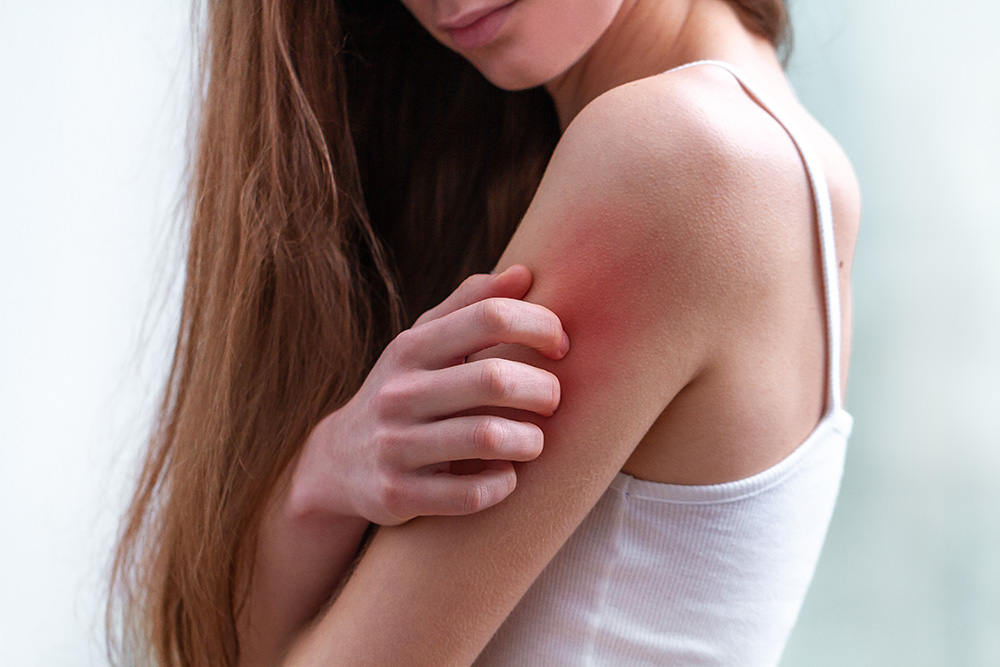
8 Ways to Combat Skin Inflammation Naturally
Skin inflammation can manifest in various forms, such as redness, swelling, itching, and even pain. Skin inflammation can be uncomfortable and unsightly, whether caused by environmental factors, allergies, or underlying health conditions. Fortunately, there are several natural ways to combat skin inflammation and promote a clearer, calmer complexion.
1. Apply Aloe Vera
Aloe vera has long been recognized for its anti-inflammatory and soothing properties. The gel inside aloe vera leaves contains compounds like aloin and aloesin, which can help reduce inflammation and promote skin healing [1]. Apply pure aloe vera gel to the affected area, allowing it to absorb into the skin for natural relief.
2. Incorporate Omega-3 Fatty Acids
Omega-3 fatty acids, found in foods like fatty fish, chia seeds, and walnuts, have been shown to have anti-inflammatory effects on the body, including the skin. These essential fatty acids help regulate the production of inflammatory compounds and may even help reduce the severity of skin conditions like psoriasis and eczema [2]. Incorporate omega-3-rich foods into your diet or consider taking a high-quality supplement.
3. Use Colloidal Oatmeal
Colloidal oatmeal, made from finely ground oats, has been used for centuries to soothe and calm irritated skin. It contains compounds called avenanthramides, which have anti-inflammatory and anti-itching properties [3]. Add colloidal oatmeal to a lukewarm bath or mix it with water to create a paste that can be applied directly to the skin.
4. Try Chamomile
Chamomile, a flowering plant in the daisy family, has been used in traditional medicine for its anti-inflammatory and skin-soothing properties. Chamomile contains compounds like apigenin and bisabolol, which can help reduce inflammation and promote skin healing [4]. Apply a cooled tea bag or a chamomile-infused cream to the affected area for relief.
5. Moisturize with Coconut Oil
Coconut oil is not only an excellent moisturizer but also possesses anti-inflammatory properties. It contains lauric acid, which has been shown to reduce inflammation and support skin barrier function [5]. Apply a small amount of virgin coconut oil to the inflamed skin, allowing it to absorb and provide natural relief.
6. Harness the Power of Turmeric
Turmeric, a vibrant yellow spice commonly used in Indian cuisine, contains a potent anti-inflammatory compound called curcumin. Curcumin has been found to reduce inflammation in the body, including the skin, and may even help improve skin conditions like psoriasis and eczema [6]. Incorporate turmeric into your diet or mix it with a carrier oil to create a topical paste.
7. Apply Green Tea
Green tea is rich in polyphenols, particularly epigallocatechin-3-gallate (EGCG), which has potent anti-inflammatory and antioxidant properties. Applying green tea topically may help reduce skin inflammation, redness, and swelling [7]. Steep a green tea bag in hot water, allow it to cool, and then apply it directly to the affected area.
8. Practice Stress Reduction Techniques
Stress can exacerbate skin inflammation and hinder the healing process. Engaging in stress-reducing techniques like deep breathing, meditation, or yoga can help lower inflammation in the body and promote a calmer, clearer complexion [8]. Incorporate stress management practices into your daily routine for overall skin health and well-being.
While these natural remedies can effectively combat skin inflammation, it's essential to identify and address the underlying cause of the inflammation. If your symptoms persist or worsen, consult with a dermatologist for personalized advice and treatment options.
References
- Hekmatpou, D., Mehrabi, F., Rahzani, K., & Aminiyan, A. (2019). The effect of aloe vera gel on prevention of pressure ulcers in patients hospitalized in the orthopedic wards: a randomized triple-blind clinical trial. BMC Complementary and Alternative Medicine, 19(1), 264. https://doi.org/10.1186/s12906-019-2675-5
- Balić, A., Vlašić, D., Žužul, K., Marinović, B., & Bukvić Mokos, Z. (2020). Omega-3 Versus Omega-6 Polyunsaturated Fatty Acids in the Prevention and Treatment of Inflammatory Skin Diseases. International Journal of Molecular Sciences, 21(3), 741. https://doi.org/10.3390/ijms21030741
- Reynertson, K. A., Garay, M., Nebus, J., Chon, S., Kaur, S., Mahmood, K., Kizoulis, M., & Southall, M. D. (2015). Anti-inflammatory activities of colloidal oatmeal (Avena sativa) contribute to the effectiveness of oats in treatment of itch associated with dry, irritated skin. Journal of Drugs in Dermatology, 14(1), 43-48. https://pubmed.ncbi.nlm.nih.gov/25607907/
- Srivastava, J. K., Shankar, E., & Gupta, S. (2010). Chamomile: A herbal medicine of the past with bright future. Molecular Medicine Reports, 3(6), 895-901. https://doi.org/10.3892/mmr.2010.377
- Varma, S. R., Sivaprakasam, T. O., Arumugam, I., Dilip, N., Raghuraman, M., Pavan, K. B., Rafiq, M., & Paramesh, R. (2019). In vitro anti-inflammatory and skin protective properties of Virgin coconut oil. Journal of Traditional and Complementary Medicine, 9(1), 5-14. https://doi.org/10.1016/j.jtcme.2017.06.012
- Vaughn, A. R., Branum, A., & Sivamani, R. K. (2016). Effects of Turmeric (Curcuma longa) on Skin Health: A Systematic Review of the Clinical Evidence. Phytotherapy Research, 30(8), 1243-1264. https://doi.org/10.1002/ptr.5640
- Saric, S., Notay, M., & Sivamani, R. K. (2017). Green Tea and Other Tea Polyphenols: Effects on Sebum Production and Acne Vulgaris. Antioxidants (Basel), 6(1), 2. https://doi.org/10.3390/antiox6010002
- Chen, Y., Lyga, J. (2014). Brain-Skin Connection: Stress, Inflammation and Skin Aging. Inflammation & Allergy-Drug Targets, 13(3), 177-190. https://doi.org/10.2174/1871528113666140522104422
Latest Posts
-
1
-
2
-
3
-
4
-
5





